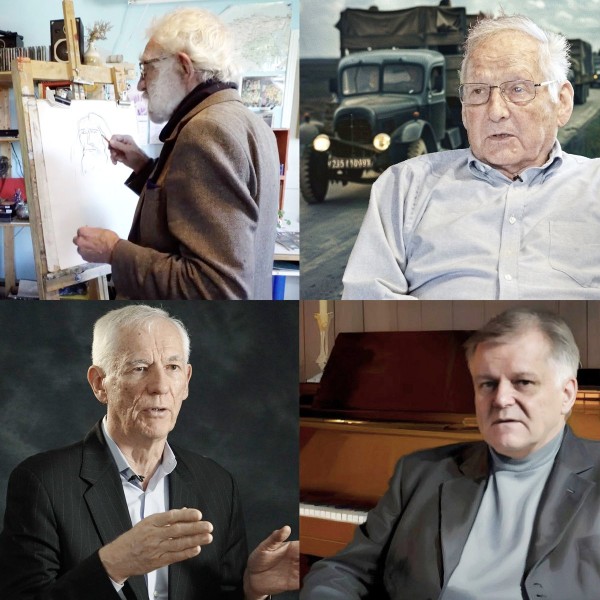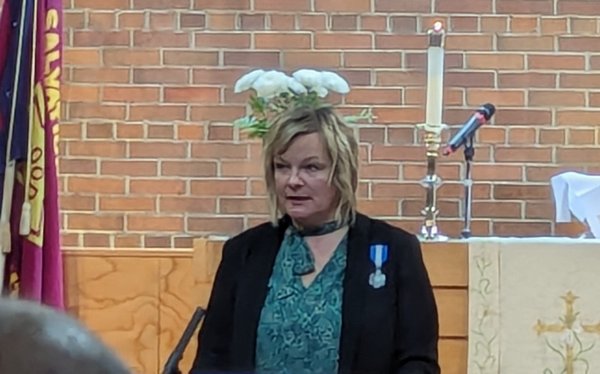In 2017 when the purchase and sale agreement with Revera was announced, many Estonian House shareholders wanted greater disclosure in regard to finances and due diligence supporting the move to the more expensive, less spacious centre proposed for Madison Ave.
When the Board requested a mandate to pursue sale of the Estonian House, construction of the “Madison Project” (International Estonian Centre) was budgeted at $18 Million and scheduled to be completed in July 2020. A “due diligence” document (dated May 2018) featured broad business concepts and construction budgets but came without proforma operating costs or detailed debt service models that most investors would look for in a solicitation. Readers did learn that in the span of a year the budget had grown from $18 million to $25 million. Fast forward two years, the shovels have not hit ground at Madison and one can only assume that delays, cost of living expenses, extension of consultancy contracts and so on could force the construction budget to climb even higher.
Undoubtedly, confidentiality is a necessary and sometimes critical aspect of business negotiations. As the IEC Update #77 (dated July 28, 2020) stated: “Some months ago, shortly after the onset of the COVID outbreak, the Purchase Agreement with Revera was terminated.” Unlike notices and subsequent meetings that followed when the Tribute and Alterra deals fell through, “confidentiality” was extended to the plain and simple fact that a pivotal agreement involving the corporation had been terminated “some months ago.” Many shareholders question why.
From 2017 separate groups of shareholders were working on alternative concepts in the event Revera might walk away. Nonetheless, Estonian House directors forged ahead to look for other buyers presumably because, in their opinion, the “spirit and intent of the Project Proposal (ca. April 2017) remains intact.” (link April 2017 resolution). Certain shareholders had timely knowledge of the Revera termination where others were not. As it turned out, even non-shareholders, including DK Acquisitions, had knowledge of the termination when many individual shareholders did not. Perhaps directors deemed it necessary or found it “advisable” to limit their search for new purchasers because they were advantaged by a connection between an IEC project manager and executives of DK Acquisitions. (See reference https://www.eesti.ca/who-is-dk... )
The announcement (link https://www.eesti.ca/toronto-e... ) of a new purchase/ sale agreement with DK Acquisitions sparked a number of community comments; including a suggestion of legal action. An action by shareholders would require a basis for controversy and determination on whether directors for Estonian House Ltd, for example, may be in breach of their fiduciary duties or have acted in a manner not in the best welfare of the corporation or its shareholders. In 2018, a Special Meeting requisitioned by shareholders raised similar concerns; in particular, whether proper or adequate due diligence of the underlying agreement with Revera had been executed by all directors. Shortly before that Special Meeting, two directors of Estonian House Ltd had resigned. Now in 2020, the lack of disclosure regarding the termination of the Revera agreement and concerns over due diligence are renewing calls from shareholders for an inspection of documents or, as one commented, a sizeable number of shareholders coming together as a class.
Leaving COVID-19 aside, it’s reasonable to question whether the economic environment and other circumstances with respect to the proposed sale of Estonian House and investment in the Madison Project remain consistent with the “spirit and intent of the Project Proposal?” Two recitals that prefaced the April 2017 resolutions may be key in determining whether “terms and conditions” tied to Madison continue to benefit Estonian House Limited as a corporation and its shareholders; those recitals are:
D. The Board is of the view that the Project Proposal best ensures the continuation of the EHL assets to support the Estonian Community for generations, all on a basis that will be economically viable.
F. The Board is of the view that the Project Proposal and the use of the proceeds of the Broadview Property to cover the majority of the anticipated construction costs at the Madison Project will provide a reasonable structure for the continuation of the EHL mandate in its Letters Patent and EHL’s activities.
In regard to Recital “D”, does continued due diligence, updated business analysis and proceeds from DK’s purchase/sale agreement support the economic viability of the Centre envisioned for Madison?
Can directors certify that the proceeds from the sale of Estonian House to DK Acquisitions will “cover the majority of the anticipated construction costs at the Madison Project” as noted in Recital F?
Directors have a fiduciary duty to the corporation, as such, Recitals D and F seem essential to regulating the actions of directors and protecting the fundamental interests of all shareholders in this particular venture. When timely information regarding the Revera agreement was kept confidential, the ability for shareholders to deliberate over the corporation’s affairs could have been irreparably damaged. In their search for replacement did the directors take preventative measures to ensure there was no undue influence from anyone acting at the Board’s behest? In November 2017 the Estonian House directors instituted conflict of interest policies that state: “the issue of Perceived Conflicts of Interest will often be more problematic than the issue of Actual or Potential Conflicts.” (https://www.eesti.ca/part-10-a... ). A reasonable person looking at this recent agreement might perceive that certain groups had advantages and access to details that others, including potential purchasers, did not have.
Directors are in a very important position, especially in regard to maximizing shareholder value and protecting the long-term sustainability of the corporation. Many Estonian House shareholders are questioning the level of disclosure and visibility they have been afforded considering the circumstances leading to this most recent purchase and sale agreement. In the days where Go-Fund-Me campaigns are being used to support all kinds of causes and efforts, many shareholders feel that their only avenue to obtain satisfactory information may be a legal one.
Allan Meiusi, EWR Contributor
Spirit and Intent (16)
Eestlased Kanadas | 16 Aug 2020 | Allan MeiusiEWR
Viimased kommentaarid
Kommentaarid on kirjutatud EWR lugejate poolt. Nende sisu ei pruugi ühtida EWR toimetuse seisukohtadega.
That's a stretch!
Sinclair documented unacceptable practices. Meiusi trades in vague hints and innuendo.
There's a difference!
Sinclair documented unacceptable practices. Meiusi trades in vague hints and innuendo.
There's a difference!
How so? Democratic rights are often regarded as if they fell from the sky.
Upton Sinclair, to cite an example of a classic "muck-raker" journalist, was a U.S. Pulitzer Prize-winning writer in several genres. His published research and novel featuring a Lithuanian immigrant, his teenaged wife and their extended family, and his work in a meat factory in Chicago, brought public lobbying for the Meat Inspection and Pure Food and Drug Acts. As an investigative journalist, Sinclair also systematically critiqued the use of yellow or tabloid journalism in the press. The first code of ethics for journalists was created 4 years after the publication of his study. It too did not fall from the sky.
There is a need for greater awareness and understanding of the past and current struggles that are essential for the democratic rights we may take for granted. We need to get involved.
Upton Sinclair, to cite an example of a classic "muck-raker" journalist, was a U.S. Pulitzer Prize-winning writer in several genres. His published research and novel featuring a Lithuanian immigrant, his teenaged wife and their extended family, and his work in a meat factory in Chicago, brought public lobbying for the Meat Inspection and Pure Food and Drug Acts. As an investigative journalist, Sinclair also systematically critiqued the use of yellow or tabloid journalism in the press. The first code of ethics for journalists was created 4 years after the publication of his study. It too did not fall from the sky.
There is a need for greater awareness and understanding of the past and current struggles that are essential for the democratic rights we may take for granted. We need to get involved.
This commenter protests too much, ironically emulating the style of convicted fraudster Conrad Black, who aspired to Br. nobility but got expelled already early in life from UCC for selling exam papers. The issue, my dear boy, is not character assassination. Upton Sinclair, to cite an example, was a U.S. Pulitzer Prize-winning classic “muck-raker”. His published research and novel featuring a Lithuanian immigrant brought public lobbying for the Meat Inspection and Pure Food and Drug Acts. As an investigative journalist, Sinclair systematically critiqued the use of yellow, or tabloid, journalism. Not magniloquently he called this his most important and most dangerous work. The first code of ethics for journalists was created 4 years after its publication. These things do not fall from the sky.
https://en.wikipedia.org/wiki/...
https://en.wikipedia.org/wiki/...
Eestlased Kanadas
TRENDING


























